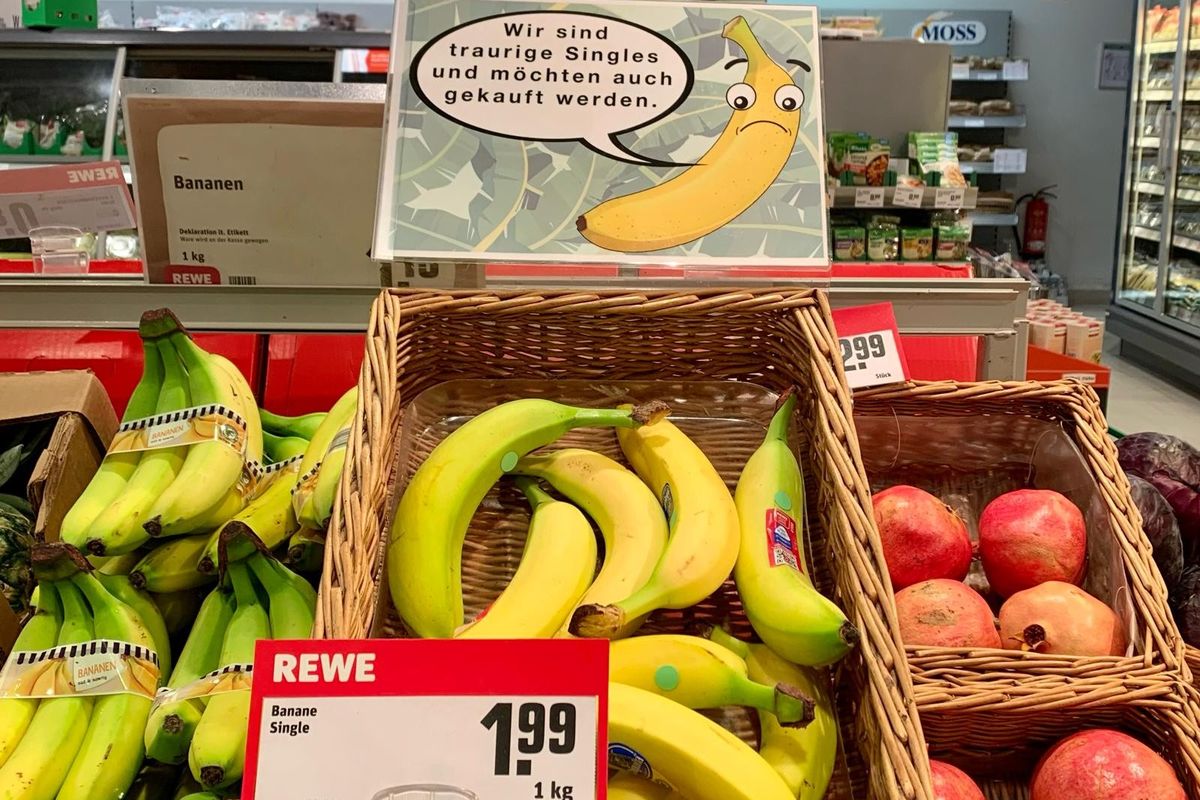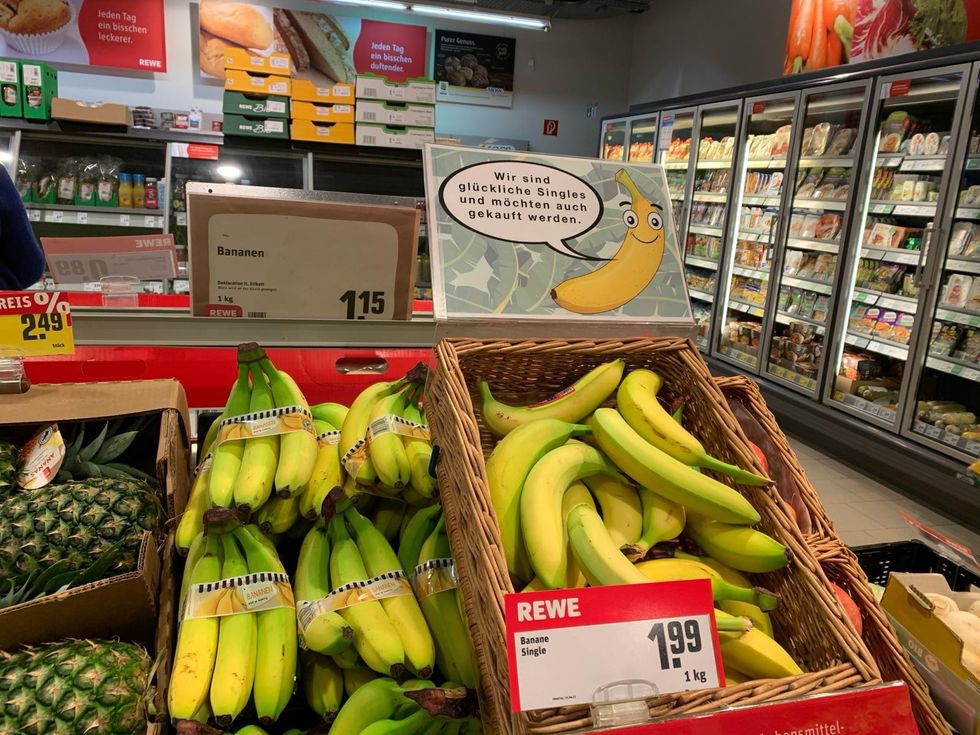Faced with a pile of loose, unsold single bananas, retailers can motivate customers to buy overlooked fruit by giving it emotional appeal, according to new research from the University of Bath’s School of Management.
A simple sign showing a banana with a downturned mouth, and the message ‘We are sad singles and want to be bought as well,’ encouraged compassion in customers, who were moved by the idea of abandoned bananas longing for a home.
The study, published in the journal Psychology & Marketing, compared the effectiveness of ‘sad singles’ signage versus ‘happy singles’, for loose bananas and tomatoes. Although both sentiments proved more effective than a sign that showed no emotion (‘Here are single bananas that want to be bought as well’) it was the signs conveying the sad emotions that proved the most effective.
On average, the number of single bananas sold per hour increased from 2.02 (when the emotionless banana sign was displayed) to 3.19 (with the sad banana sign) – an increase of 58 per cent.
In comparison, the happy banana signage increased hourly sales of single bananas from 2.02 to 2.13 (5.4%), making the sad banana signage almost 50 per cent more effective than the happy banana signage.
“As far as we know, this is the first study comparing happy and sad expressions on bananas separated from their bunch to look at the impact on sales,” said Dr Lisa Eckmann from the Bath Retail Lab at the University of Bath. “The plight of the single bananas is really relatable and the findings have very practical applications for boosting sales and reducing food waste from our supermarkets.
“The need to belong is one of the most basic human motivations, and applying sadness to single, stray bananas evokes a compassionate response from shoppers. Labelling bananas with sad facial expressions sounds cute, but there’s very much a serious purpose. The study shows it’s an easy, low cost, effective intervention for retailers and policymakers.”
Separated from their bunch by shoppers discarding one banana too many, or by transport, single bananas are part of the problem of picky consumer preferences that helps to account for 131 million tons of waste in the retail sector (UN Environment Programme 2024).
Previous research has shown single bananas have been shown to account for the highest amount both of climate impact and of food wasted at retailers. Current food waste avoidance practices explicitly list single bananas as a source of avoidable food waste (BCG 2024; EcoWorlder 2022; Rees 2023).
The researchers, from the University of Bath, RWTH Aachen University and Goethe University Frankfurt, carried out the experiment in the German supermarket chain REWE, observing purchasing behaviour of single bananas of 3,810 customers over 192 hours. The supermarket chain had previously labelled bananas as singles wanting to be bought but had not added the emotional element.
The in-store study was adapted to an online experiment that asked 745 shoppers to imagine they were going to the supermarket intending to buy bananas. A further online study with 1,990 participants replicated the set-up for tomatoes, and 995 online participants took part in a final study to investigate the effect of price discounts on bananas.
Previous research has looked at the impact of anthropomorphism to increase consumer acceptance of imperfect produce, such as food that deviates in shape from expectations or reduced freshness, but it has not been applied to presentation – bananas separated from a bunch or tomatoes loose from a vine.
The impact of the sad bananas did not outweigh a drop in price – discounting the produce was more effective at driving people to choose single bananas. The researchers say that when retailers cannot or do not want to reduce the price, using sad anthropomorphism could be an effective strategy to boost sales of single produce.
“Food retailers could apply a step-wise intervention approach where they first use anthropomorphism as a sales-boosting strategy before turning to price discounts,” said Dr Eckmann. “We don’t know whether consumers might get emotionally numb to sad bananas in the long term, but it’s an idea that certainly draws people in, and is easy to act on. I wasn’t aware of how single bananas accumulate to such a big food waste problem, and now I always look out for loose, single bananas when I’m shopping.”
The researchers say that future research could examine under which conditions sad expressions are not more effective than happy expressions, for example when produce is deformed or slightly damaged.



